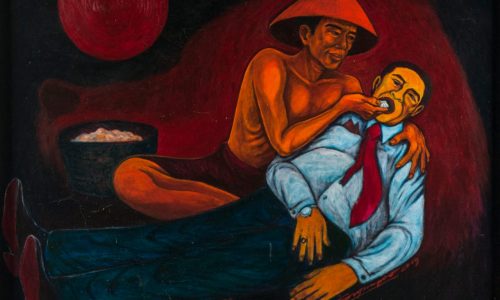The government has spoken out regarding Indonesia’s stance on Iran’s recent attack on Israel, asking the United Nations Security Council (UNSC) to take swift action to de-escalate tensions in the region.
In a statement released by the Ministry of Foreign Affairs on April 14, 2024. Indonesia emphasized its commitment to fostering peace in the Middle East. The ministry called on the UNSC to intervene and address the situation promptly.
“We continue to strive for peace in the Middle East,” the ministry said in its official X account.
Additionally, Indonesia asked all parties involved to exercise restraint to prevent further escalation. The government also reiterated its call for the UNSC to end Israel’s occupation of Palestine.
The UNSC is scheduled to hold a meeting today in response to Israel’s request to condemn Iran’s attack and designate the Islamic Revolutionary Guard Corps (IRGC) as a terrorist organization. According to Reuters, the meeting is set to take place at 16.00 ET (20.00 GMT), as per the schedule released on April 13, 2024.
Israel’s Ambassador to the UN, Gilad Erdan, sent a letter to the council’s president on Saturday, requesting an emergency meeting. The letter, posted by Erdan on his official account on April 14, 2024 at 7:44 WIB, highlights the urgency of the situation.
Iran launched dozens of drone attacks on Israeli territory in response to previous attacks on its diplomatic facilities in Damascus, Syria, on April 1. The attacks were confirmed by Iran’s Islamic Revolutionary Guard Corps (IRGC), which stated that the strikes were retaliation for Israel’s actions.
Indonesia’s role and limitations
Despite Indonesia’s commitment to a free and active foreign policy, its involvement in Middle Eastern conflicts is often limited.
“Realistically, Indonesia and Southeast Asia often play a secondary role in Middle Eastern conflicts. The primary actors are usually the United States, Norway, or Arab countries,” Dino Patti Djalal, a former Indonesian Ambassador to the United States and Deputy Foreign Minister in 2014, said on Monday, April 15, 2024.
He emphasized that not all countries in Southeast Asia are deeply concerned about escalating conflicts in the Middle East. Therefore, Indonesia’s influence in such matters is somewhat restricted.
Regarding the role of the United Nations, Dino pointed out the challenges in reaching effective resolutions, citing previous difficulties in addressing conflicts such as the Israel-Palestine issue due to vetoes from major powers.
“In the case of the UN, for example, it’s challenging to pass a resolution on Israel-Gaza due to frequent vetoes by the United States. Therefore, any UN Security Council discussion on Iran-Israel tensions may lead to a clash between the US-led bloc and Russia and China,” explained Dino.
Despite the limitations, Dino sees potential for Indonesia to leverage its relationship with Iran to assert its presence on the international stage. He suggested initiating direct communication with Iranian officials to explore possible diplomatic solutions.
“Indonesia could seize opportunities by reaching out to Iran’s government officials, given our existing relations. We could then relay our concerns to the United States, possibly finding a middle ground,” he added.
In conclusion, while issuing normative statements may have limited impact, Indonesia remains committed to pursuing diplomatic avenues to address regional tensions and promote peace in the Middle East.









